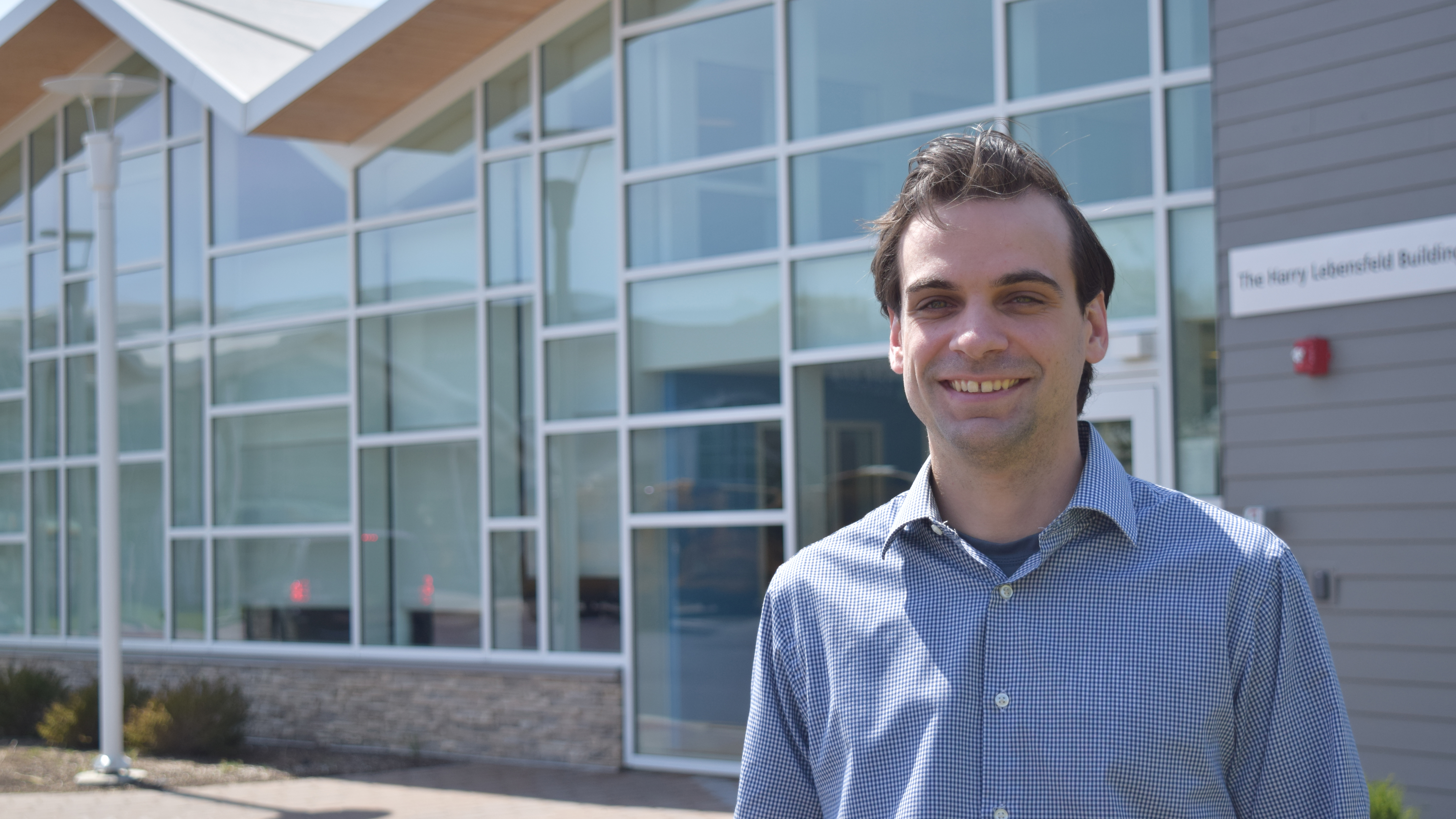Friday, May 4, 2018
Sean Smith to attend the University of Nebraska Medical Center's Munroe Meyer Institute
by Rachel Stengel '14
As a behavior specialist, Sean Smith wants to handle the cases no one else will treat — cases like the non-verbal child with autism who has been turned away from traditional classrooms or the child with ADHD who has never found a way to moderate her hyperactivity.
To ensure he's prepared to meet this goal, he became a member of the first class of students to graduate from the master's in applied psychology program through Rider's partnership with Bancroft, a leading regional nonprofit provider of programs and services for individuals with autism, intellectual and developmental disabilities, and those in need of neurological rehabilitation. Just a few months after graduating this May, he will begin a doctoral program in applied behavior analysis (ABA) at the elite University of Nebraska Medical Center's Munroe Meyer Institute to further his expertise.
Rider's partnership with Bancroft is one of 15 that provides tuition assistance for local organizations. Qualified Bancroft employees can earn their master's by taking classes on Bancroft's campus. The program also prepares them to take the national exam to become a board-certified behavior analyst.
"I actually pulled out of another master's program once I heard of this program. I thought it was almost too good to be true," says Smith. "I was working during the day and implementing what I was learning during class."
The University of Nebraska Medical Center's doctoral program was the first in the nation to be integrated with a University Center of Excellence on Developmental Disabilities, a national network of organizations devoted to ensuring those with disabilities can participate fully in their communities. It also utilizes a specialized training model that marries didactic instruction with supervised research and clinical practice in tandem to better integrate classroom knowledge with practical application.
"ABA is a growing field and there are not enough people with the skills and knowledge needed to bring about more dramatic changes in patients who have tough cases," says Smith. "I know this Ph.D. program will help me get to that deeper level of analysis."
ABA is a type of therapy that focuses on using the principles of learning and motivation to alter behavior. According to the American Psychological Association, ABA has proven especially helpful in the treatment of those with intellectual and developmental disabilities.
Smith has spent the past five years working at Bancroft, which offers an array of services including special education, day and residential programs, vocational training and supported employment. Under the guidance of a board-certified behavior analyst, Smith works with patients to identify problem behaviors, discover why they engage in specific behaviors and develop a customized treatment plan to adjust behaviors.
"A patient could be engaging in self-injurious behavior to get something they want, like an iPad. We teach them other ways to achieve the same goal like verbally asking for the item or using sign language," says Smith.
Smith hopes to one day become a clinical director at a program that treats problem behaviors and possibly teach at the university level.
"The types of cases we treat with ABA are within a population that is in desperate need," he says. "I want to be able to provide the best clinical services possible so I can help affect change. I can see myself teaching for similar reasons one day in my career. By teaching I could help extend the field in general and guide the new generation of ABA professionals."

